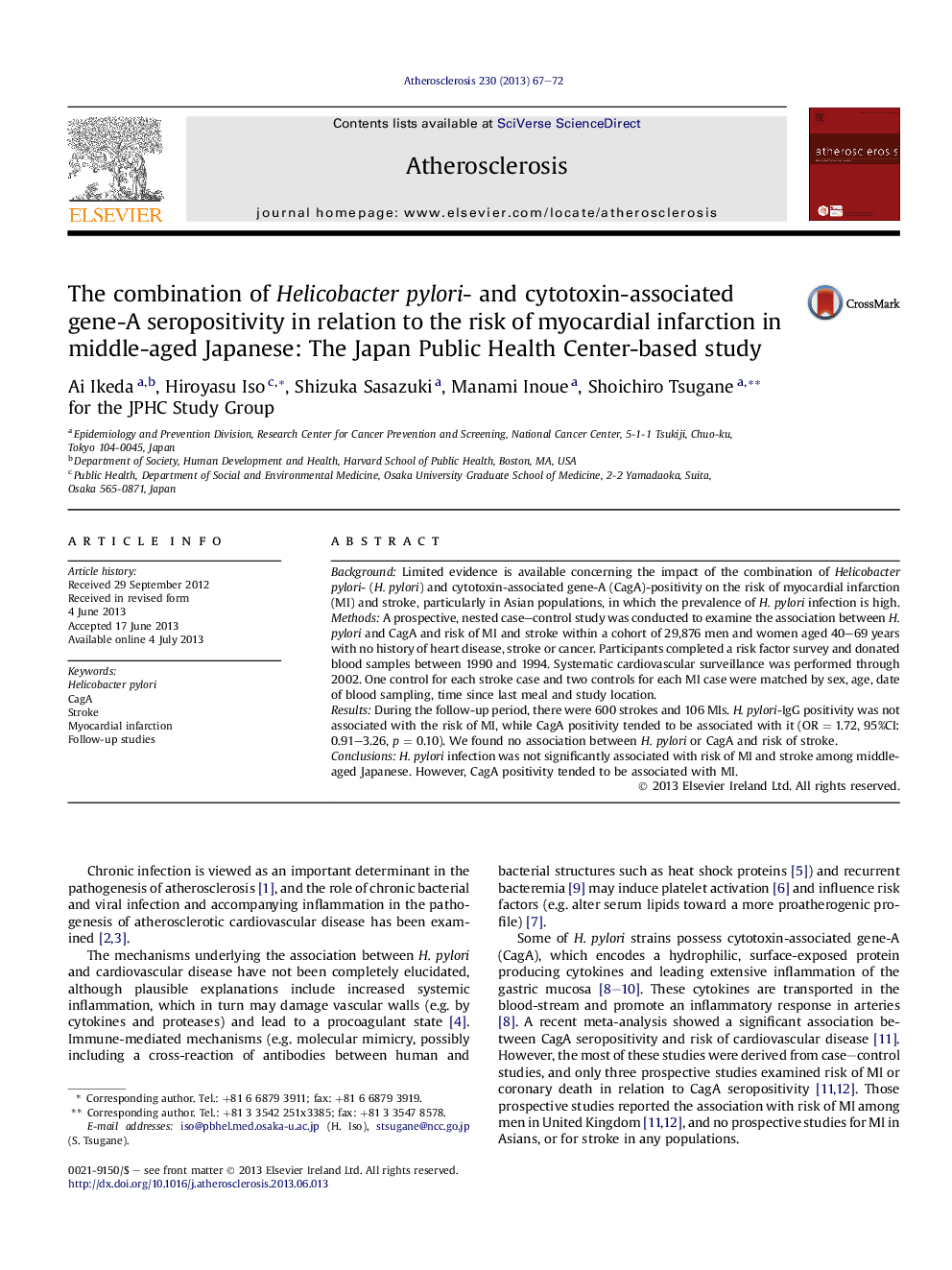| Article ID | Journal | Published Year | Pages | File Type |
|---|---|---|---|---|
| 2892712 | Atherosclerosis | 2013 | 6 Pages |
•The first prospective study examined the association between H. pylori and CagA and CVD incidence in Asian populations.•H. pylori IgG positivity was not associated with risk of MI, while CagA positivity tended to be associated with it.•The combination of H. pylori IgG negativity but CagA positivity was associated with risk of MI.
BackgroundLimited evidence is available concerning the impact of the combination of Helicobacter pylori- (H. pylori) and cytotoxin-associated gene-A (CagA)-positivity on the risk of myocardial infarction (MI) and stroke, particularly in Asian populations, in which the prevalence of H. pylori infection is high.MethodsA prospective, nested case–control study was conducted to examine the association between H. pylori and CagA and risk of MI and stroke within a cohort of 29,876 men and women aged 40–69 years with no history of heart disease, stroke or cancer. Participants completed a risk factor survey and donated blood samples between 1990 and 1994. Systematic cardiovascular surveillance was performed through 2002. One control for each stroke case and two controls for each MI case were matched by sex, age, date of blood sampling, time since last meal and study location.ResultsDuring the follow-up period, there were 600 strokes and 106 MIs. H. pylori-IgG positivity was not associated with the risk of MI, while CagA positivity tended to be associated with it (OR = 1.72, 95%CI: 0.91–3.26, p = 0.10). We found no association between H. pylori or CagA and risk of stroke.ConclusionsH. pylori infection was not significantly associated with risk of MI and stroke among middle-aged Japanese. However, CagA positivity tended to be associated with MI.
